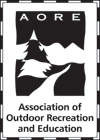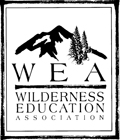Abstract
Effective outdoor educators need to understand the developmental characteristics of students to best tailor programs to capitalize upon their capabilities. To the extent that learning is a primary objective of outdoor education programs, understanding our students’ intellectual processes, specifically, can enhance our effectiveness in achieving this goal. This article presents several frameworks for understanding the developmental knowledge construction of adolescent, college-aged, and young adult students that were developed in traditional education settings. The purpose of this study was to determine the relevance of these models in an adventure education setting. Qualitative data were collected from students of the National Outdoor Leadership School. Results indicate that, despite differences between traditional and adventure learning environments and the types of problems students encounter in those settings, established framework of developmental knowledge construction are observable in the outdoor education classroom. Implications for teaching to developmentally different populations of students are discussed.
Recommended Citation
Collins, R. H.,
Paisley, K.,
Sibthorp, J.,
& Gookin, J.
(2012).
“Black and white thinkers” and “colorful problems”: Understanding student thinking in outdoor education.
Journal of Outdoor Recreation, Education, and Leadership, 4(3), 185–198.
https://doi.org/10.7768/1948-5123.1097


